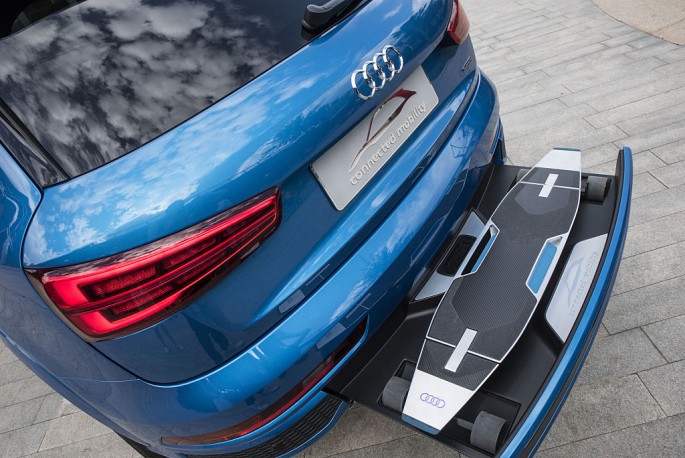Audi, the German luxury carmaker owned by Volkswagen, is planning to collaborate with China's three biggest tech firms to increase its reputation in creating connected cars as the company signed agreements with Tencent, Alibaba and Baidu at its annual summit in Shanghai on Sunday, Sept. 11.
The Financial Times said that the company will work closely with the three Chinese firms on data analysis, Internet-vehicle platform building, and urban intelligent transport.
The move is part of the company's effort to keep up with the trend where traditional carmakers link up with software specialists as new startups join the sector involved with self-driving vehicles and so-called "Internet of Things" connectivity.
Its rival BMW has announced a partnership in July with Mobileye, an Israeli sensor maker, to produce autonomous cars over the next decade.
In the global luxury car market, Audi has been left behind by BMW and Mercedes, but in China, it has been the leading car brand, in terms of sales, since 1988, when Audi set up a joint venture with Chinese First Automobile Works.
Audi has sold about 336,580 cars in the country, from January to July this year, which account for one in three of the brand's global sales.
In comparison with rivals, Audi sales have increased by only 6.5 percent while BMW deliveries rose by 8.5 percent and Mercedes sales posted 32 percent increase, to 287,753 and 257,276, respectively.
Analysts said that investing in Internet-connected technology can help maintain the lead. According to Arndt Ellinghorst, at Evercore ISI, car buyers in China "appear to be even more connected than people in the western world." Partly, the reason for this is that the average buyer in China is 36 years old, 10 years younger than in the U.S. and 20 years younger than in Germany.
To develop the technology, Audi opened a research and development centre in Beijing in 2013, with the aim to sell in China first, before they export globally.
"The Chinese are early adopters. If you're not here with the latest stuff, then you can't win," Martin Kuhl, an Audi spokesman in Shanghai, said.
Kühl said that the company has been successful in their efforts and then they deployed it in some places. Engineers in Germany now use the touchscreen technology developed in Beijing.
Audi has been working with Alibaba for almost a decade and the two companies have been working on 3D maps, with high-resolution images and real-life photos of buildings, as well traffic data technology this year.
"This kind of map material is not even available outside of China," Kuhl said. "Alibaba has done a really great job and we've been the first to use this data, to use these maps."
Kühl said that Audi uses the interface to link with a different data feed or with services from Google or HERE, the navigation software jointly purchased last year by Audi with BMW and Daimler for 2.8 billion euros.
Meanwhile, Audi has started its relationship with Baidu two years ago. Audi plans to introduce Baidu CarLife, into its cars to compete with Apple's CarPlay. The app includes Baidu's free navigation software with support for third-party apps.
"Of course we also offer Apple CarPlay in China but there are more Chinese using the local services," Kuhl said.
Audi has also started collaborating with Tencent earlier this year. The company is now working to integrate WeChat MyCar services for location and music sharing.



























